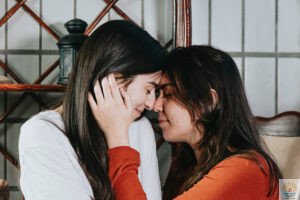Lesbian Problem Solution In Oman
Nurturing Inclusivity and Support for Lesbian Problem solution in Oman
Introduction: Addressing the unique challenges that lesbian individuals encounter in Oman necessitates a multifaceted approach that emphasizes education, awareness, and advocacy. Despite the conservative cultural context and legal constraints, it’s crucial to facilitate understanding, create safe environments, and promote acceptance for lesbians in Oman.
1.Promoting Education and Awareness:
• Launch targeted awareness campaigns in partnership with local NGOs, organizations, and LGBTQ+ activists to foster knowledge and acceptance of diverse sexual orientations.
• Conduct seminars, workshops, and panel discussions to provide accurate information about homosexuality, dispel common misconceptions, and encourage open conversations.
• Develop informative resources that can be distributed in schools, community centers, and religious institutions to enhance tolerance and knowledge.
2.Establishing Safe Havens:
• Form dedicated support groups that cater specifically to lesbian individuals, offering a platform for sharing personal stories, challenges, and valuable resources.
• Advocate for the creation of LGBTQ+-friendly spaces within communities, where individuals can interact without fear of prejudice or discrimination.
• Collaborate with mental health professionals to provide counseling services tailored to the emotional well-being of lesbian individuals.
3.Pursuing Legal Reforms:
• Collaborate closely with human rights entities to raise awareness about the importance of legal safeguards for LGBTQ+ members, including lesbians.
• Advocate for a reconsideration of discriminatory laws and regulations, striving for comprehensive rights and protections for all citizens, regardless of sexual orientation.
• Support legal initiatives that counteract bias, endorse equal opportunities, and grant lesbians access to essential services like healthcare and education.
4.Engaging Religious Institutions:
• Facilitate constructive dialogues between LGBTQ+ advocates and religious leaders to cultivate understanding and inclusivity within faith-based communities.
• Highlight interpretations of religious texts that underscore values like empathy, respect, and inclusiveness, countering interpretations that propagate discrimination.
• Collaborate on projects that bridge religious teachings with LGBTQ+ acceptance, encouraging an environment of coexistence.
5.Enhancing Media Representation:
• Champion positive and truthful depictions of LGBTQ+ individuals, including lesbians, across various media platforms such as television, film, literature, and online content.
• Share authentic stories and experiences of lesbian individuals in Oman to humanize their struggles and encourage empathy within society.
• Urge media outlets to cover LGBTQ+ rights and related topics to stimulate informed and productive discussions.
6.Leveraging International Support:
• Establish alliances with international human rights organizations to access resources, guidance, and advocacy assistance for LGBTQ+ rights in Oman.
• Utilize global platforms to shed light on the obstacles faced by lesbian individuals in Oman, rallying international backing for positive change.
Conclusion: The journey to alleviate challenges confronted by lesbian individuals in Oman demands a holistic strategy that involves education, awareness, advocacy, and collaborative efforts. By fostering understanding, fostering secure spaces, and endorsing inclusivity, we can work towards a more compassionate and accepting society, where lesbians can live authentically, devoid of discrimination and apprehension.
BLOG
Top Astrologer In Bhopal
Top Astrologer in Bhopal
Love Problem Solution In Dadar
Love Back expert Astrologer in faridabad
Best Tantrik
Top Astrologer

